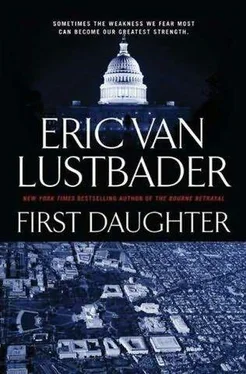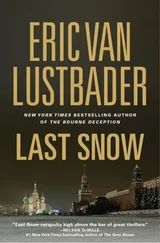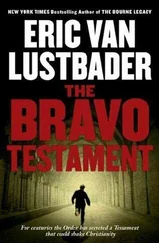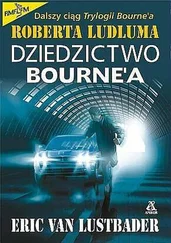Jack, concentrating fully, shook his head.
Nina looked around, said to Armitage, "Honestly, I don't get what you're all about."
"It's not so mysterious, despite what the talking heads on Fox News claim," Armitage said. "I and people like me don't want to live in a 'Christian nation,' we don't want members of the Administration to be anointing themselves with holy oil. Above all, we don't want a president who believes he's doing the will of God. We simply want the freedom to explore the unknown, wherever that might lead."
"Where d'you stand on the human soul?"
"Several leading scientists around the world who are missionary secularists believe that what we call a soul is in fact electrical energy, that when the body dies, that energy lives on. That's one of the mysteries they're trying to solve."
"And God?"
"God is a personal matter, Ms. Miller. Many of us believe absolutely in God, in whatever form. It's not God that we're fighting against. It's what's done in God's name by all the 'systems of religion.'
"Here, let me give you an example from history." He rummaged around his desk until he found a hardcover book titled Marriage of Heaven and Hell . "These are the words of William Blake, the eighteenth-century English visionary:
'All Bibles and sacred codes have been the cause of the following errors:
That man has two really existing principles, viz., a body and a soul.
That Energy, called Evil, is alone from the body, and Reason, called Good, is alone from the soul.
But the following contraries to these are true:
Man has no body distinct from the Soul-for what is called body is that portion of the soul discerned by the five senses…
Energy is the only life, and is from body, and Reason is the bound or outward circumference of energy.'»
Armitage closed the book, set it aside. "What William Blake is saying is that there is no evil inherent in human beings. I believe him. The story of the poisoned apple from the Tree of Knowledge is a fiction created by men who, from the first, sought power over others by keeping them ignorant."
Nina said, "Still, I don't understand your preoccupation with finding the meaning of things. What if there is no meaning?"
"Keeping yourself in ignorance is the Church's idea," Armitage said calmly. "Knowledge is wisdom, Ms. Miller. Wisdom is power. Power provides individuality."
"It also feeds the ego," Nina said. "An excess of ego breeds chaos."
"Come on." Jack took Nina by the elbow, moved her toward the rectory door. "This guy can debate you until Gabriel comes calling." As he hustled her out the door, he said, "Thanks for your help, Armitage."
"Anytime." Armitage was already back to work, scanning his e-mails.
"I just may take you up on that." Jack closed the door softly behind him.
AS SOON as Jack and Nina left the FASR offices, a young woman in her early twenties got rid of her current call. She was pretty, dark of hair, fair of cheek. In fact, in looks, size, and age she was remarkably similar to the homeless girl Ronnie Kray had picked up off the street for the use of her left hand, the girl who was now moldering in his refrigerator.
The pretty FASR worker dialed a local number. Almost immediately, she heard the familiar male voice on the other end.
"Yes, Calla."
"He just left," Calla said into the receiver.
"You're certain it's him," Kray said.
Calla looked down into the open drawer of her desk. Among the pens, pencils, erasers, paper clips, and spare staples was the small photo of Jack McClure Kray had given her. It had the same flat, slightly grainy look as the photos of Alli Carson that hung on the wall of Kray's house in Anacostia.
"Absolutely," Calla said.
"Tonight. Same time, same place." Kray broke the connection.
"DDAMNIT!"
Secretary Dennis Paull rarely lost his temper, but as those who worked closely with him could attest, when he did fly into a rage, it was best to say, "Yessir!" and get out of his way.
"Goddamnit to hell!" The Secretary of Homeland Security had his cell phone jammed so tightly to his head, circulation was being cut off to his ear. "The occupants were roasted alive, then."
He listened intently to the harried voice on the other end of the line. The call had come in just as he was about to go into a debriefing with the POTUS, the Secretary of State, and one of the ranking generals-he forgot who, they all looked, spoke, and thought alike-who had just returned from the successful arm-twisting of the Russian president, Yukin. The POTUS was jubilant. He told Paull to get his fanny over to the West Wing, that they were all going to gorge themselves on beluga caviar, a parting gift from Yukin, who had knuckled under to the president's agenda.
Paull had been on his way to see his wife, not that she would recognize him. But when he failed to see her during the week, his heart broke all over again, and thoughts of their courtship and early years together would flood through him like a riptide, threatening to spin him away on whatever mysterious current had snatched her away from him. For an insane moment, he had contemplated the unthinkable: defying the president, sitting with Louise, holding her hand, willing the puzzlement out of her eyes and mind, willing her back to him. But then his survival instincts, honed by decades inside the Beltway, came to the fore and saved him.
Paull was about to say something but caught himself in time. He was standing on the blue carpet that led to the Oval Office. He was surrounded by polished wood paneling, cream paint, and the hushed sounds of a staff that ran like a well-oiled machine. Like the emanations of magnetic north, he felt the waves of power so close to the Oval Office. He was not fooled, however; the power lay in the office, not in the man who temporarily inhabited it. He strode down the hall, and then ducked into a small room, an extra office that was deserted. His phone was specially designed by the magicians at DARPA, ensuring that his conversations would sound like gibberish to anyone picking up the bandwidth. Nevertheless, he was cautious about his own voice being overheard.
"You're sure they're dead," he said into the phone.
"They had no time to get out," the man on the other end of the line said. "And believe me, no one short of Superman could have survived that blaze."
"How the hell did this happen?"
"The best I can tell, McClure pissed them off. He got on to them; he sicced his ATF pals on them. They couldn't believe it, so they went after him."
Paull rolled his eyes. Why did he have to suffer these incompetents? But he already knew the answer. Incompetents were who this Administration hired. "And," he prompted.
"They got a little overzealous."
Paull had to count to ten before he could say in a low voice, "You call firing handguns on the parkway 'overzealous'? This wasn't a termination mission, for the love of Mike."
Silence on the line.
Paull felt as if his eyes were bugging out of his head. "It sure as hell wasn't a termination mission."
"Sir," the disembodied voice replied, "they sure as hell thought it was."
WHAT ABOUT your car?" Nina said.
Jack drove south on Kansas Avenue. Considering the gray BMW, he thought it best not to be driving his car the rest of the day. "After we're done, you can drop me back here."
"It may be nothing but a burned-out husk by that time," Nina said.
"Or it might not be there at all and I can requisition a new one."
"Har-har." Nina banged down her door lock. "Where are we going, anyway?"
"Take a look at the list."
Nina took up the two sheets Armitage had given them, her eyes scrolling down the list of names. "What am I looking for?"
"Known criminals."
Читать дальше












